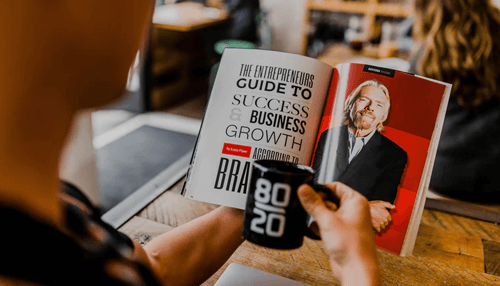Richard Branson is one of the world’s best-known entrepreneurs but many don’t know that he has dyslexia, a learning disability that makes it difficult for him to show his immense capabilities at school, as teachers have branded him as lazy or slow. These days, Branson says that his disability helped him in one particular way—it encouraged him to delegate tasks so he could concentrate on the creative side of growing a business. His experience is just one of many that reveal the extent to which a talented entrepreneur can turn a challenge into a benefit through creative strategizing and reframing of goals. Indeed, life lessons from entrepreneurs who teach about overcoming personal hurdles to achieve their best performance.
Bram Cohen of BitTorrent: The Power of Focus
Bloomberg’s Susan Berfield hit the nail on the head when she said that Bran Cohen, who is the founder of BitTorrent, is a natural in the world of objects, patterns, and technology but sometimes “floating, disoriented in the everyday swirl of human interactions.”
In 2001 he developed BitTorrent, a disruptive, free, and somewhat polemic technology that allowed users to download one file from various sources simultaneously. Cohen told the BBC that having Asperger’s gave him an advantage in that it allowed him to hone in intensely on his area of interest, technology. “There are a lot of unusual aspects to how I am and some of those are necessary to the work I do,” he said.
Oliver Morton-Evans: Making a Difference
Oliver Morton-Evans is a Sydney, Australia-based entrepreneur whose company, Neuromersiv, focuses on helping people who have experienced a stroke or spinal injury. The company has developed a virtual reality device that simulates tasks so as to boost motivation during rehabilitation.
As stated by the Cerebral Palsy Family Network, rehabilitation when movement, balance, and posture are affected can be repetitive and challenging. Throwing in virtual reality technology can help empower people and help them gain more independence. Morton-Evans states that his own experiences helped his technology gain a competitive edge since he knows the obstacles to independence and mobility that can make specific tasks more difficult for people with cerebral palsy and other disorders.
Penelope Trunk: Building Trust
Building a trusted network of advisors and collaborators is difficult at the best of times but when you have autism and sensory processing disorder, it can seem insurmountable. Not for Penelope Trunk, the founder and CEO of multiple startups, including Brazen Careerist, which connects upcoming professionals with other specialists in their fields. She overcame her biggest challenges by sticking to very strict routines and by sharing her story with people she had built a trusted connection with. Of course, it took plenty of trial, error, and risk to meet people and create a filter to find and depend on a top-level team.
Richard Branson, Bram Cohen, Oliver Morton-Evans, and Penelope Trunk are all sources of inspiration for entrepreneurs the world over. They reveal the extent to which challenges can be side-stepped or even used to full advantage to give life to one’s passion. Branson himself is the perfect example of how a disability in one area can hone one’s abilities in creative, entrepreneurial pursuits that require innovative thinking and strong vision.



